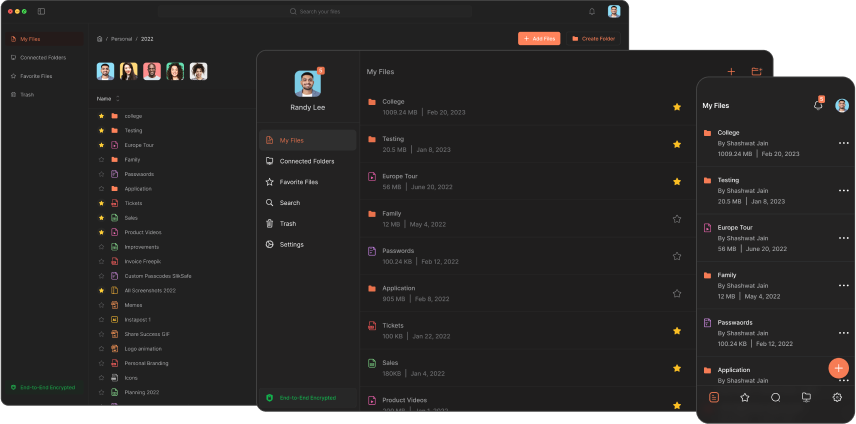Comprehensive Guide to Using an AI Thesis Generator
In today's academic landscape, the pressure to produce high-quality, original work has never been higher. Whether you're a student struggling with writer's block or an academic aiming to streamline your research process, an AI Thesis Generator can be a game-changer. This blog will provide a comprehensive overview of AI thesis generators, including their benefits, how they work, and tips for maximizing their potential.
What is an AI Thesis Generator?
An AI Thesis Generator is a specialized software powered by artificial intelligence algorithms designed to assist in the creation of thesis statements, proposals, and even full-length papers. These tools analyze a given topic or keywords, generate a coherent and academically sound thesis statement, and provide suggestions for related arguments and sources.
Benefits of Using an AI Thesis Generator
- Time Efficiency: Saves time by quickly generating thesis statements and outlines.
- Inspiration: Offers fresh perspectives and ideas that you may not have considered.
- Error Reduction: Minimizes grammatical and syntactical errors.
- Resourceful: Provides citations and references that align with your thesis.
- Consistency: Maintains a consistent tone and structure throughout your writing.
How Does an AI Thesis Generator Work?
AI Thesis Generators utilize Natural Language Processing (NLP) and Machine Learning (ML) algorithms to analyze input data, such as keywords or topics, and generate a thesis statement. Here's a simplified breakdown of the process:
- Input Data: You enter your research topic or relevant keywords.
- Data Analysis: The AI processes the input data, analyzing millions of academic papers and articles to understand contextual and relevant information.
- Thesis Generation: Based on the analysis, the AI generates a coherent thesis statement.
- Outline and Content: The tool can also provide an outline and suggest sections, arguments, and references.
Detailed Features of Top AI Thesis Generators
Feature 1: Customization Options
Almost all top-tier AI Thesis Generators offer customization options to tailor the thesis statement according to specific academic requirements. These may include:
- Field of Study: Customizing according to subjects like Science, Arts, Engineering, etc.
- Complexity: Adjusting the complexity level to match undergraduate, master’s, or PhD standards.
- Length: Specifying the desired length of the thesis statement or sections.
Feature 2: Real-Time Suggestions
AI Thesis Generators often provide real-time suggestions for improving your thesis. These suggestions may span:
- Alternative Phrasing: Offering more concise or impactful ways to state your thesis.
- Argument Strength: Evaluating the strength of your arguments and providing improvement tips.
- Source Integration: Suggesting reliable sources and how to cite them correctly.
Feature 3: Grammar and Style Check
Grammar and style checks ensure that your thesis is not just coherent but also engaging and grammatically correct. Look for AI tools that offer:
- Grammar Check: Correcting syntactical errors.
- Plagiarism Check: Ensuring that the content is original.
- Style Recommendations: Improving readability and adherence to academic writing standards.
How to Maximize the Potential of an AI Thesis Generator
Step 1: Clearly Define Your Topic
The more precise and clear your input, the better the output. Ensure that you:
- Specify Keywords: Use specific and relevant keywords.
- Include Constraints: Mention any particular angles or limitations for the research.
Step 2: Iterate and Refine
Don't settle for the first thesis statement generated. Use the AI tool iteratively:
- Generate Multiple Statements: Create multiple thesis statements and compare them.
- Refine Inputs: Adjust your keywords and topic based on initial outputs for optimized results.
Step 3: Utilize Additional Features
Most AI Thesis Generators offer a variety of additional features that can make your research process more efficient:
- Outline Generation: Use the tool to generate a research outline.
- Argument Suggestions: Explore suggested arguments to support your thesis.
- Citation Integration: Automatically generate citations in MLA, APA, or other formats.
Common Pitfalls to Avoid
Over-Reliance on AI
While AI can significantly aid your research, it's crucial to:
- Critically Evaluate Outputs: Always critique the AI-generated content.
- Human Touch: Ensure that your voice and critical thinking are evident in the final output.
Ignoring Grammar and Style
Even the best AI can make mistakes. Before finalizing your thesis:
- Proofread: Manually proofread the content for errors.
- Edit for Style: Adjust the writing style to meet academic standards.
Conclusion
AI Thesis Generators represent a remarkable advancement in academic writing tools, offering a blend of efficiency, resourcefulness, and inspiration. They can serve as invaluable aids in the thesis writing process, provided they are used judiciously.
By following the guidelines and tips outlined in this article, you can harness the full potential of AI Thesis Generators to produce top-notch academic work. Whether you're a seasoned academic or a student embarking on your first research project, these tools can provide the support and inspiration needed to elevate your writing.
Feel free to explore these groundbreaking tools and share this comprehensive guide with your colleagues or peers who may also benefit from the efficiency and creativity that AI Thesis Generators bring to the table.
By following SEO guidelines and ensuring detailed, well-structured content, this blog aims to rank high in search results for those seeking to understand AI Thesis Generators. For additional tips on optimizing your academic writing tools, stay tuned to our blog.
Download Now
The Slikest Files Experience Ever Made
